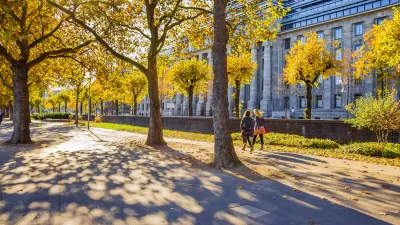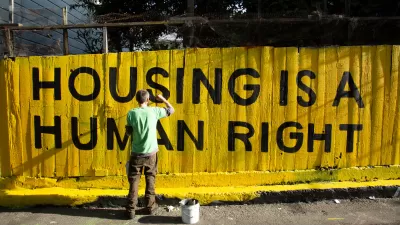Lecturers call race a "surrogate" for socioeconomic factors that determine health outcomes, reports Beth Fitzgerald.
A day-long conference on health in black communities last week highlighted racial disparities in health, but speakers identified socioeconomic, cultural, and geographic factors as more important determinants than race.
The conference, entitled "Taking Good Care: A History of Health and Wellness in the Black Community," was part of Rutgers University's annual Marion Thompson Wright lecture series. Keynote speaker and former Surgeon General Dr. Joycelyn Elders hinted at the point when she said, "Today, we could all do more for our own health than all the medical discoveries in the past 100 years."
Researchers who presented at the conference indicated that the health outcomes they observed in poor neighborhoods – often food deserts – emerged regardless of race. Rather, factors like education, access to public transportation, and clean air determined the likelihood of serious medical problems like heart disease and diabetes.
Elders also pointed to cultural habits as a culprit: "If you don't hurt and you don't bleed, in the black culture you aren't sick." That attitude prevents diagnoses for many asymptomatic conditions, such as high blood pressure, which in turn "kill us because we don't get a check-up."
FULL STORY: At Black Healthcare Conference, Class and Race are Recurring Themes

Planetizen Federal Action Tracker
A weekly monitor of how Trump’s orders and actions are impacting planners and planning in America.

Chicago’s Ghost Rails
Just beneath the surface of the modern city lie the remnants of its expansive early 20th-century streetcar system.

San Antonio and Austin are Fusing Into one Massive Megaregion
The region spanning the two central Texas cities is growing fast, posing challenges for local infrastructure and water supplies.

Since Zion's Shuttles Went Electric “The Smog is Gone”
Visitors to Zion National Park can enjoy the canyon via the nation’s first fully electric park shuttle system.

Trump Distributing DOT Safety Funds at 1/10 Rate of Biden
Funds for Safe Streets and other transportation safety and equity programs are being held up by administrative reviews and conflicts with the Trump administration’s priorities.

German Cities Subsidize Taxis for Women Amid Wave of Violence
Free or low-cost taxi rides can help women navigate cities more safely, but critics say the programs don't address the root causes of violence against women.
Urban Design for Planners 1: Software Tools
This six-course series explores essential urban design concepts using open source software and equips planners with the tools they need to participate fully in the urban design process.
Planning for Universal Design
Learn the tools for implementing Universal Design in planning regulations.
planning NEXT
Appalachian Highlands Housing Partners
Mpact (founded as Rail~Volution)
City of Camden Redevelopment Agency
City of Astoria
City of Portland
City of Laramie





























